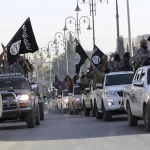A Saudi benefactor has been sponsoring the Hajj pilgrimage for some 500 Syrians injured in the war.
For the second consecutive year, Prince Abdulaziz, the son of the late King Fahd bin Abdulaziz Al Saud, known in northern Syria as Abu Turki, has sponsored about 500 Syrian pilgrims injured in the war. He covers their travel and accommodation costs, as well as the issuance of travel documents and Hajj acceptance permits.
“I lost my legs, but Allah compensated me with the opportunity to visit his sacred house,” said Ismail al-Masri, a father of eight residing in Atmeh camp near the Syrian-Turkish border. He lost his leg due to a barrel bomb dropped by Assad regime aircraft on his village of Kafruma in 2016.
Al-Masri told Al Jazeera that going for Hajj was one of his dreams, a dream he never imagined would come true due to his poor financial condition, especially after his injury and displacement from his village at the beginning of 2020 after the regime retook control. However, when he received the news of his acceptance in the war injuries grant for Hajj, he felt as if he had come back to life.
“Yesterday’s dream has become a reality today. I will stand near the Kaaba on my one foot and thank Allah for His countless blessings. I pray to Allah to compensate me with the best in Paradise for the foot I lost,” said al-Masri.
Prince Abdulaziz kept his identity hidden for a long time and was known in northern Syria only as the philanthropist Abu Turki before he appeared and disclosed his real identity last year during his visit to the Syrian pilgrims whose expenses he sponsored.
“My acceptance in the pilgrims’ grant is a gift from Allah to me, and I have accepted this gift and am going with a great longing to worship Allah and visit the grave of our Prophet Muhammad,” said Hassan Ghazawi, a displaced person from Eastern Ghouta in the countryside of Damascus.
He currently resides in the city of al-Bab in the Aleppo countryside. He lost both his legs in an air raid by the Assad regime on the city of Douma in Eastern Ghouta in 2015.
“I will pray to Allah on the day of standing at [Mount] Arafat to provide every Muslim with the means to perform the Hajj rituals, especially the people of northern Syria,” added Ghazawi.


